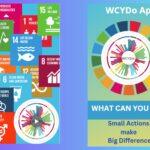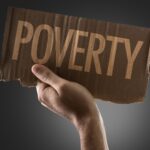We throw a plastic bottle into the white sack and walk away with that warm glow which comes from ‘doing the right thing for the environment’. What happens next? It will be recycled… won’t it? How? Where? We don’t know.
In an ideal world, waste is sorted into its constituent parts: paper and cardboard sent to mills for pulping; drinks cans re-created from recycled aluminum (largely, old drinks cans); glass washed and reused in more or less its original state or smashed and melted down to create new glassware.
Plastics are the biggest problem, because processing discarded plastic is expensive and complicated and the market for it in its reprocessed state small. About two-thirds of the UK’s plastic recycling goes overseas to be recycled, where it can be done more cheaply. China used to import most of the world’s plastic waste but from 2018 they have refused to import anything less than 99.5% pure. Malaysia, Indonesia, Vietnam and Turkey then offered to process the contents of our recycling bags, although Turkey has very recently (19 May 2021) refused to take anymore.
But how efficiently was recycling being carried out in these countries? An investigation by Greenpeace1 found evidence of packaging from well-known British supermarkets discarded in illegal dump sites in (tropical) Malaysia and recycling bags from three London local authorities ripped open and piled with other plastic bags. One dump was 10 feet high and covered a 5-acre site. Nearby residents were complaining of fumes. Sometimes waste is wrongly labelled – by mistake or deliberate deception? Plastics were burned at a paper mill in Indonesia because they had arrived from the UK labelled ‘cardboard’. Our recycling is being sent abroad to countries where there is no proper monitoring of waste processing, and the uncomfortable questions are not being asked. Andrew McAfee2 believes that recycling plastic is not worth the bother, as transporting, sorting and processing it uses up too much by way of energy resources, especially as so much of it ends up in landfill.
So, if we cannot depend upon our recycled plastics being actually recycled, what can we do towards Sustainability Development Goal 12: Responsible Consumption and Production, to achieve environmentally sound management of chemicals and all waste?
We can reduce the amount of plastic we use and throw away, especially in packaging. We can put our shopping into ‘bags for life’ and buy fruit and vegetables loose, placing them for weighing in the reusable net bags which are available in most supermarkets. The Americans have carried their shopping out the supermarket in sturdy paper bags since time immemorial. Unfortunately, we have little control over packaging when we order online, except (where possible) to use suppliers, like The Body Shop, who deploy paper-based packaging, which can be recycled more readily. All that sarcastic talk of ‘knocking down a tree’, which we used to hear a decade ago, pales into insignificance when considering the plastic waste crisis
We must think before we throw anything into the white recycling bag. If recycling is contaminated, with food or other residues, it automatically goes into waste for landfill or incineration. We should rinse out everything we recycle. Clean items are more suitable for processing into what they were before.
We should consult any recycling instructions on the label. The mobius loop (three twisted arrows) indicates that the item in question may be recycled, but not where and how.

‘Widely recycled’ means what it says, acceptable to most waste-management operations, but we should make the effort to ‘check local recycling’ if directed to do so, as local recycling companies have different equipment and vary in what they can accept. Plastic bottles and containers are ‘widely recycled’ but their tops, including lever-pump tops, should (as a general rule) be put with general rubbish. When bottles are baled at the processing plant, air trapped within plastic bottles with their tops on can cause them to ‘pop’ and force the bales apart.
What recycling processing plants cannot deal with is items made up of several materials – paper and plastic, for instance. Most take-away coffee cups, which have a bonded polyethylene liner, makes them unsuitable for paper or plastic recycling (with a few exceptions, such as at National Trust venues in UK). The disappointing but correct advice given by experts is, if we’re not sure, to put the item in question into general rubbish.
Let’s find alternatives to plastic where possible, for instance, beeswax sandwich wraps, available from Waitrose and from Beeswax Wrap Co, although, unfortunately, the price is prohibitive.

‘Compostable’ bags rot down in the garden composter into minute pieces within a six-month period. Amazon sell a range of these, more expensive than your average bags, but not eye-wateringly so.

Ethical distributors, such as Riverford Organic Farmers, use these with their fruit and vegetable boxes – and we can reuse them afterwards.
And there are all things we probably do already, like reusing the plastic containers and bags that still come our way. There are many internet sites bursting with creative ways to repurpose household plastic items, which may well put us in mind of ‘things to do with children on a wet afternoon’, but are good ideas nonetheless. On a more everyday note, the robust white plastic containers in which we receive our Chinese takeaways are brilliant for storing left-overs in the fridge and in the freezer, for picnics and storage generally. No need for Tupperware these days.
Plastic carrier bags (oh so despised!) are good as wastebin liners. Smaller bags are good for dog poo and cat litter. An unfortunate consequence of British supermarkets being prohibited by law from giving away carrier bags is that we now buy bin liners.
We don’t have to be a ‘throw-away society’. In fact, if we look at how our parents and grandparents used whatever came their way, we realise how recently we became one. Time yet to relearn how to use and reuse plastic responsibly.
Rosemary
May 2021
References:
https://www.insider.com/mit-research-andrew-mcafee-says-recycling-is-useless-2019-10
Do you agree? Tell us what you think – email: tellus@whatcanyoudo.earth or via our “Social Media Channels” (Top Right of our landing page)
“tellus” is a Latin word meaning “Earth” e.g. Tellus Mater the ancient Roman Earth Mother Goddess







